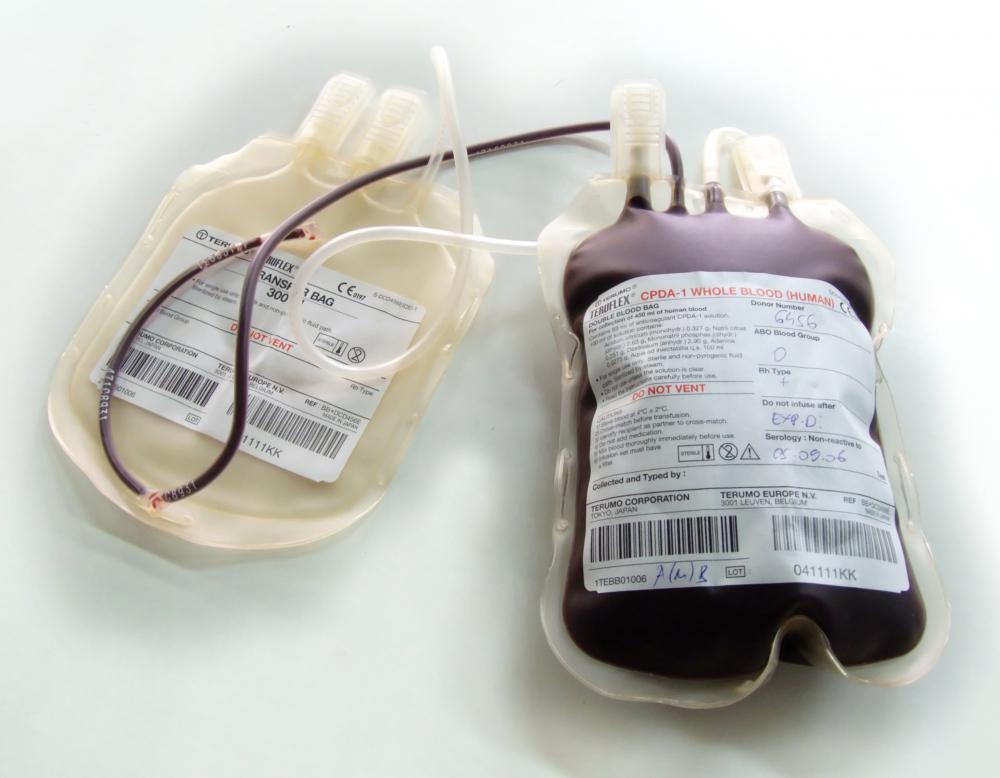At TheHealthBoard, we're committed to delivering accurate, trustworthy information. Our expert-authored content is rigorously fact-checked and sourced from credible authorities. Discover how we uphold the highest standards in providing you with reliable knowledge.
What is Favism?
Favism is a medical condition which is caused by an enzyme deficiency in the blood. People with this deficiency can experience anemia as a result of exposure to fava beans. The condition is most common in people who live around the Mediterranean, and it generally affects men, although women can be carriers. For people with this condition, an assortment of other foods and some pharmaceuticals can also trigger a reaction. The most effective treatment is to avoid the substances that can trigger anemia and a blood transfusion for people in anemic crisis.
Officially, favism is known as Glucose-6-Phosphate Dehydrogenase Deficiency, or G6PD. The severity of this condition varies from patient to patient; in all cases, people suffer what is known as hemolytic anemia because their lack of this enzyme means that the health of their red blood cells is impaired. As a result, the cells can break down very quickly, triggering a range of symptoms from tiredness to coma, depending on the severity of the anemia. Southeast Asians and some Africans are also at risk of this condition.

Fava beans have been linked with anemic conditions since ancient times, which is why “favism” is used as a generic name for G6PD deficiency. Not all people with this condition react to these beans, however, and other legumes can also spark an anemic episode. G6PD deficiency also causes severe reactions with some medications. People with this condition should speak to a medical professional about what drugs to avoid, as different medications represent different risks for unique individuals, and the list of risky drugs is quite long.

For someone with the severe form, exposure to even the pollen of fava beans can cause a reaction, as will consumption of the beans. The patient may feel tired, feverish, or experience a headache, and the condition can also cause abdominal pain, nausea, and vomiting. If left untreated, it can result in serious health problems, like a coma. Early warning signs include jaundice, dark urine, and a general sense of feeling run down and tired all the time.

People who think that they may have favism can be tested for it. A simple blood test can check a patient's enzyme levels to determine whether or not the patient has a deficiency and how severe the condition is. G6PD is genetic, so people who have family members with the condition may want to consider being tested.
AS FEATURED ON:
AS FEATURED ON:
















Discussion Comments
My son got H1N1 about six months ago and got Tamiflu as a part of the treatments.
Having favism (G6PD) he did not get any reaction to the treatment with tamiflu.
My daughter recently had an episode when she went in for an endoscopy. The numbing spray they used on her throat caused the reaction. The surgeon knew what to do, so after transferring to the ICU, she was given methylene blue, which reversed her condition. Now she cannot have lidocaine, benzocaine, and a series of things, including nitrates! Very serious stuff!
My 2 year old son is G6PD deficient (<1).I would like to know if he can have the tamiflu.Can someone answere this query because we have been in close contact with a confirmed case....I am so worried. Thanks. -- Eli (London)
I have G6PD and i'd like to know whats the effects of tamiflu to the favism's persons, i'd like to know if its going to work with us? coz you know the swine flu is all over the world..
Thanx
Post your comments